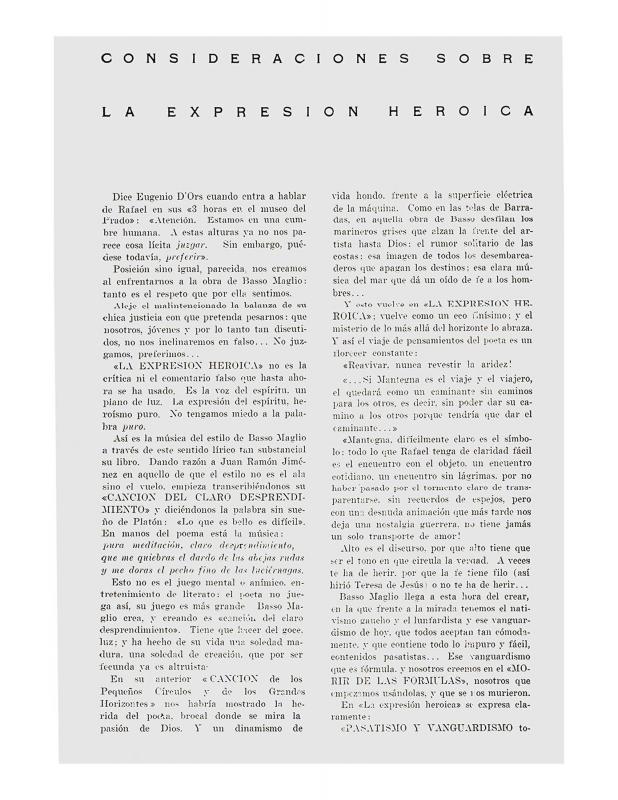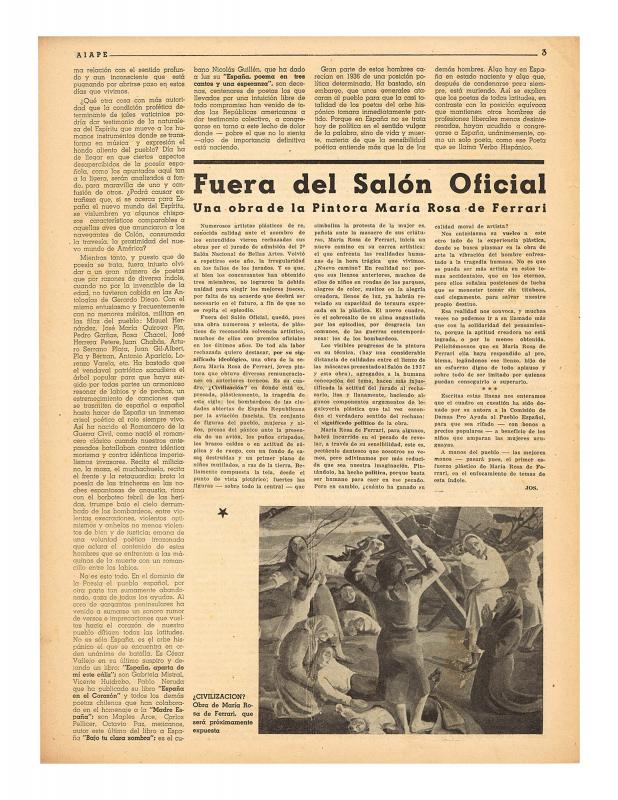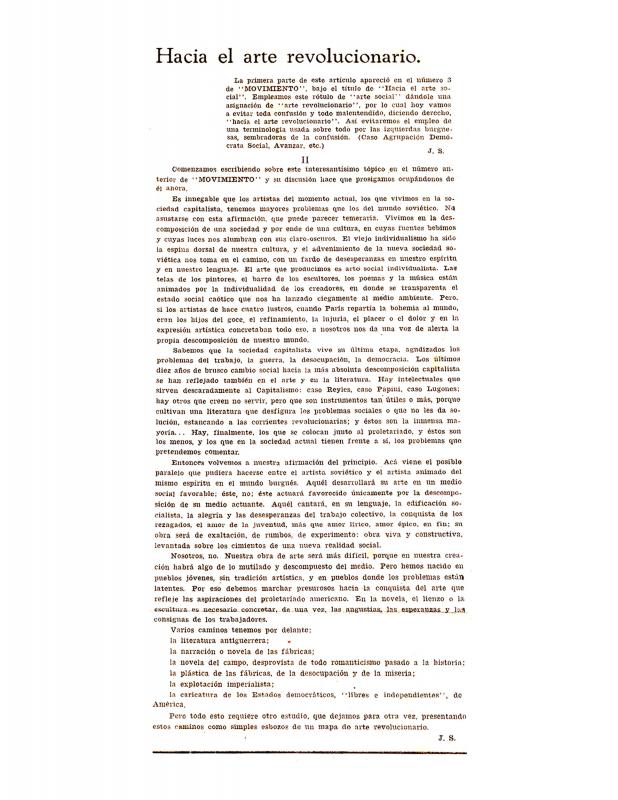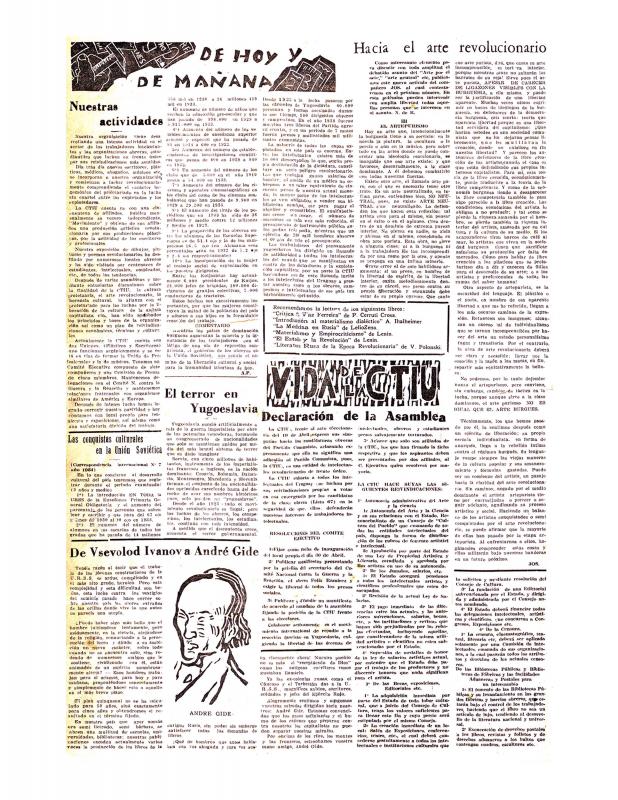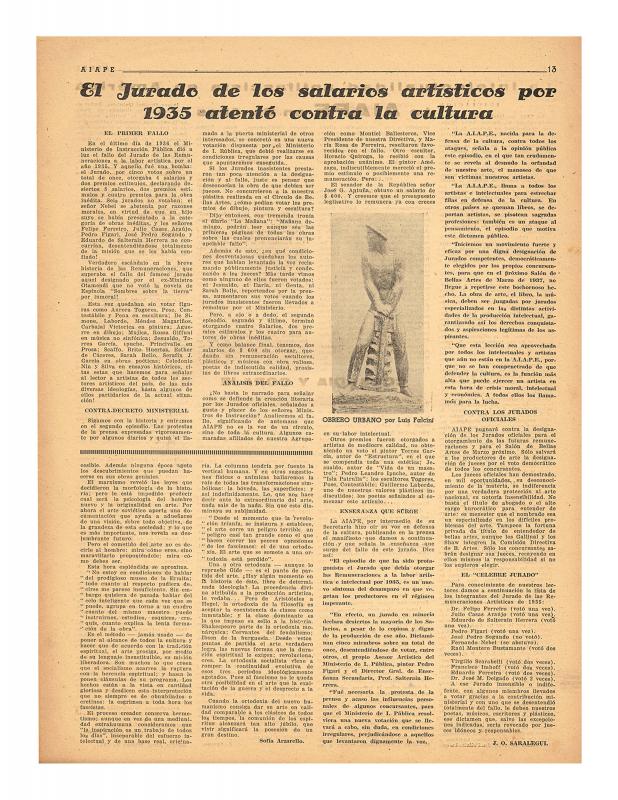Carlos Vaz Ferreira (1872–1958) was the philosopher par excellence in the Uruguayan academic sphere in the first half of the twentieth century. Books like Moral para intelectuales, Fermentario, and Lógica viva constitute a body of thought still worthy of study and debate. He was named “Maestro de Conferencias” of the Universidad de la República, and became the rector of that university in the thirties.
The author of this article, then, speaks of Vaz Ferreira with respect even as he criticizes what has been the cornerstone of all of his lectures: a mitigating logic of “proper balance” and “eclecticism” whether regarding epistemological approach or social conduct. The radical nature of the thinking emerging on the left at the time did not afford the possibility of a “neutral” zone in ideological debate: all neutrality was considered to actively oppose revolutionary thought. The journal Movimiento—published in Montevideo from 1933 to 1936—was the continuation of Aportación, a journal founded at the impetus of David Alfaro Siqueiros during his visit to Montevideo in 1933. Movimiento—the organ of the Confederación de Trabajadores Intelectuales del Uruguay (C.T.I.U.), which encompassed a group of visual artists—endorsed wholesale the declaration of “class against class” struggle issued at the Comintern in 1928. That hard-line ideological position influenced the early profile of “social realism” in painting and sculpture.
[For further reading on this subject, see in the ICAA digital archive the following texts by Juvenal Ortiz Saralegui: “Consideraciones sobre la expresión heroica” (doc. no. 1225615), “Fuera del Salón Oficial” (doc. no. 1221528), “Hacia el arte revolucionario” (doc. no. 1198856), “Hacia el arte revolucionario III” (doc. no. 1198748), and “Los jurados de los salarios artísticos de 1935 atentó contra la cultura” (doc. no. 1225596)].

